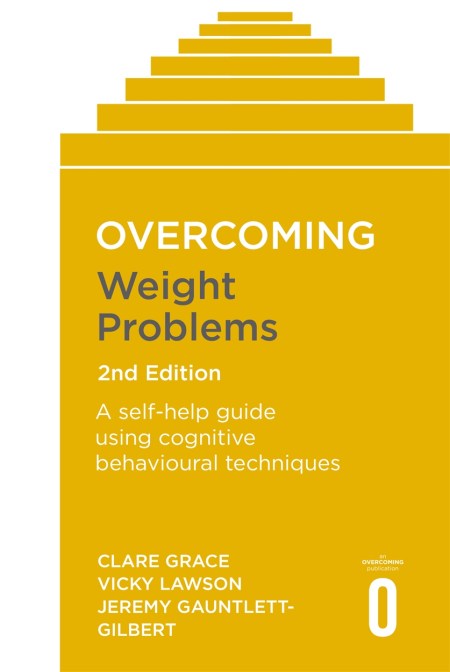Overcoming Weight Problems 2nd Edition
On sale
12th December 2019
Price: £12.99
This clinically tested, comprehensive course based on cognitive behavioural therapy (CBT) techniques can provide a longer-term solution to your weight problems.
You’ll come to understand your own psychological blocks to managing weight and discover how to sustain a healthy lifestyle. Learn how you can:
– Develop the motivation to change your eating and activity
– Respond to emotional eating in a helpful way
– Work with the thoughts and emotions getting in the way of change
– Work out a simple, healthy and sustainable eating plan that fits with your daily routine
– Find easy ways to add more physical activity into your everyday life
Overcoming self-help guides use clinically proven techniques to treat long-standing and disabling conditions, both psychological and physical. Many guides in the Overcoming series are recommended under the Reading Well scheme.
Series editor: Emeritus Professor Peter Cooper
You’ll come to understand your own psychological blocks to managing weight and discover how to sustain a healthy lifestyle. Learn how you can:
– Develop the motivation to change your eating and activity
– Respond to emotional eating in a helpful way
– Work with the thoughts and emotions getting in the way of change
– Work out a simple, healthy and sustainable eating plan that fits with your daily routine
– Find easy ways to add more physical activity into your everyday life
Overcoming self-help guides use clinically proven techniques to treat long-standing and disabling conditions, both psychological and physical. Many guides in the Overcoming series are recommended under the Reading Well scheme.
Series editor: Emeritus Professor Peter Cooper
Newsletter Signup
By clicking ‘Sign Up,’ I acknowledge that I have read and agree to Hachette Book Group’s Privacy Policy and Terms of Use
Reviews
'In conjunction with other weight-loss approaches [behaviour therapy] was more effective in reducing weight or delaying weight regain [than diet alone or drug therapy] either at the end of treatment or at the 1-year follow-up or both' US National Heart, Lung and Blood Institute

